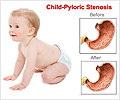Pediatric nurse staffing ratios are associated with hospital readmission for children with common medical and surgical conditions.

The study, published online in the journal BMJ Quality and Safety in Health Care, looked at such common medical and surgical conditions as pneumonia and appendectomy.
"Preventing unnecessary hospital readmissions is an increasingly important focus of large-scale quality improvement initiatives," says Heather Tubbs-Cooley, PhD, RN, a nurse scientist at Cincinnati Children's and the study's main author. "Reducing preventable readmissions is also a high priority for hospitals, particularly as they face the prospect of nonpayment for these services."
Dr. Tubbs-Cooley and colleagues from the University of Pennsylvania found that each one patient increase in a hospital's average staffing ratio increased the odds of a medical patient's readmission within 15-30 days by 11 percent. The odds of readmission for surgical patients increased by 48 percent.
Children treated in hospitals meeting a contemporary staffing benchmark of no more than four patients per nurse were significantly less likely to be readmitted within 15-30 days. Nursing staffing ratios had no effect on readmissions within the first 14 days after discharge.
The study team examined the outcomes of more than 90,000 children in 225 hospitals using survey and discharge data from California, Florida, New Jersey and Pennsylvania, as well as the American Hospital Association Annual Survey from these four states. All hospitals included in the study were non-federal, acute-care facilities with at least 50 pediatric discharges a year.
Despite the study results, she isn't ready just yet to endorse mandated staffing ratios. "We have abundant evidence that better nurse staffing levels in hospitals are associated with better patient outcomes, but we lack robust data to guide decision-making regarding optimal staffing levels for a given unit or patient population. Producing that evidence will require different designs and methods than those we have relied on in the past."
Source-Eurekalert
 MEDINDIA
MEDINDIA


 Email
Email





